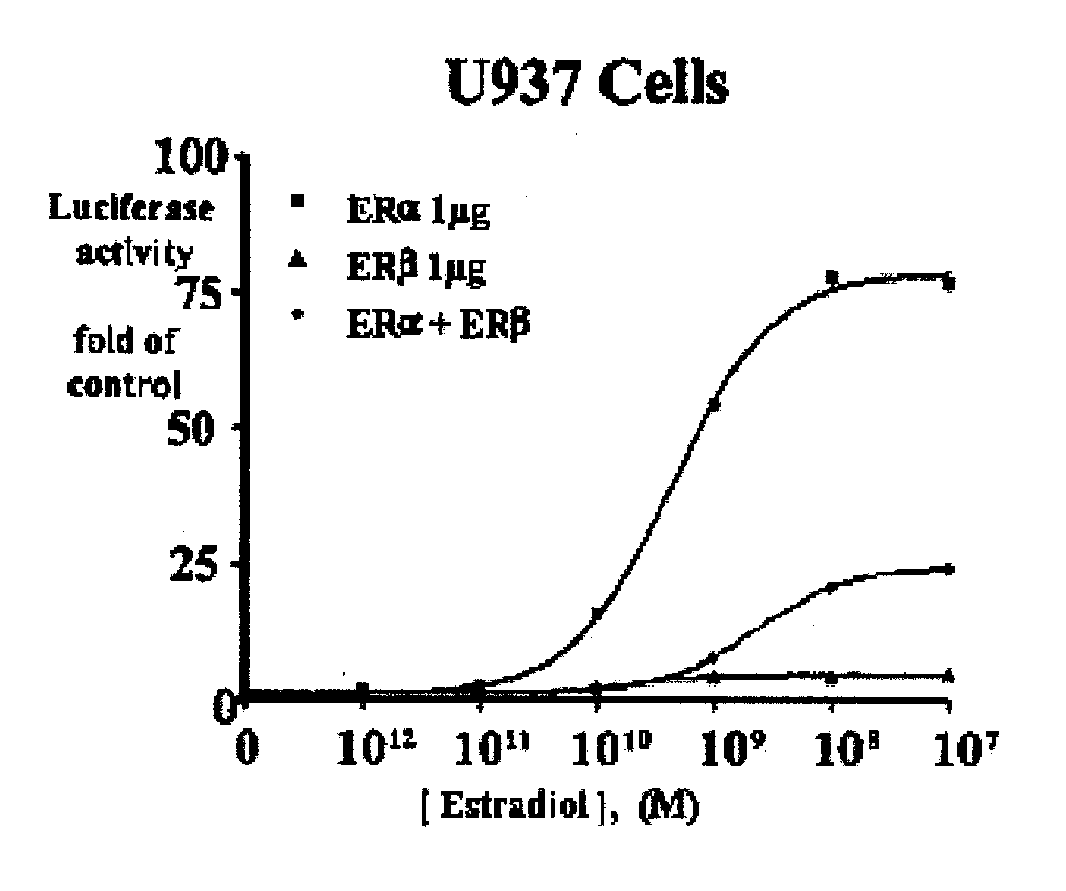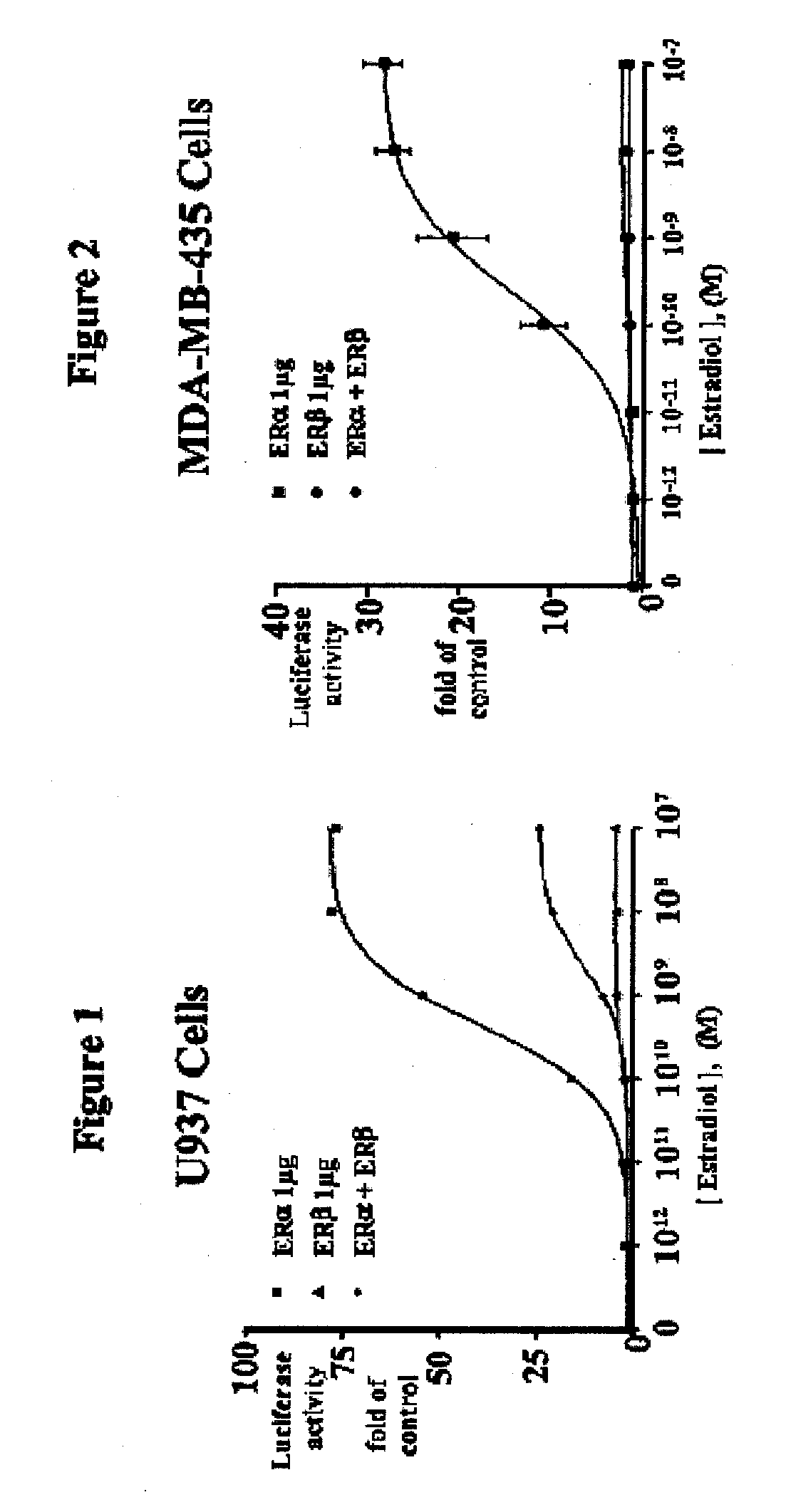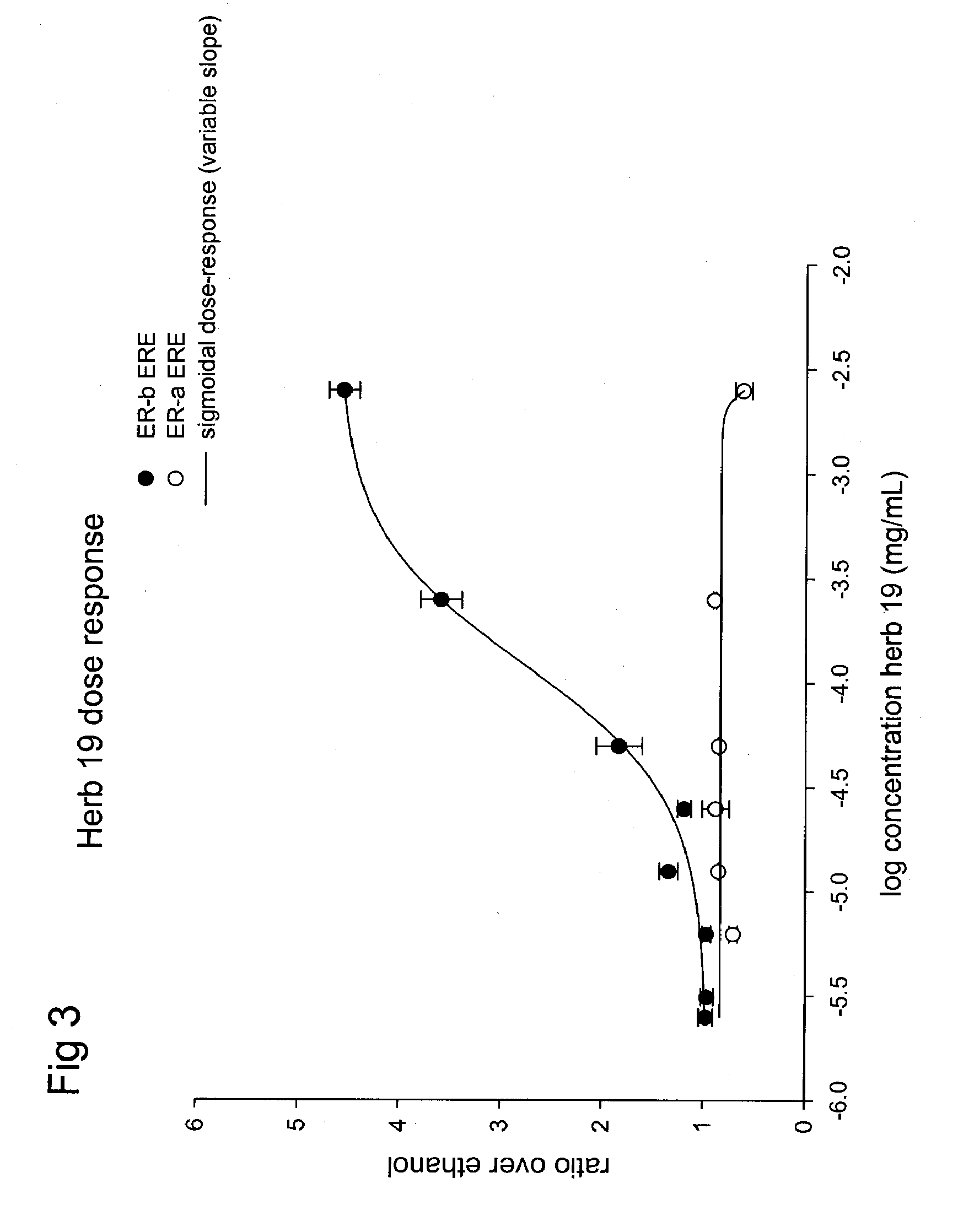ESTROGENIC EXTRACTS OF Asparagus conchinchinensis (Lour.) Merr of the Liliaceae Family AND USES THEREOF
a technology of asparagus conchinensis and liliaceae, which is applied in the field of plant extract compositions, can solve the problems of unsatisfactory effects, 35% increased risk of breast cancer, and abrupt halting of recent women's health initiative (whi) study, so as to reduce the risk of one or more estrogen receptor-mediated disease states and increase the risk or likelihood
- Summary
- Abstract
- Description
- Claims
- Application Information
AI Technical Summary
Benefits of technology
Problems solved by technology
Method used
Image
Examples
example 1
ERβ is Weaker than ERα at Activating ERE-tkLuc
[0085]The effects of E2 on transcriptional activation were examined by transfecting a plasmid containing a classical ERE upstream of the minimal thymidine kinase (tk) promoter linked to the luciferase reporter cDNA and an expression vector for ERα or ERβ. E2 produced a 10-fold greater activation of the ERE in the presence of ERα compared to ERβ in human monocytic U937 cells, but the EC50 values were similar.
example 2
ERβ is More Effective than ERα at Repressing the TNF-RE-tkLuc
[0086]The effects of effects of E2 on ERα and ERβ-mediated transcriptional repression were then compared using the −125 to −82 region of the TNF-α promoter, known as the tumor necrosis factor-response element (TNF-RE). TNF-α produced a 5-10-fold activation of 3 copies of the TNF-RE (−125 to −82) upstream of the tk promoter (TNF-RE tkLuc). E2 repressed TNF-α activation of TNF-RE tkLuc by 60-80% in the presence of ERα and ERβ. However, ERβ was approximately 20 times more effective than ERα at repression (IC50 of 241 pM for ERα versus 15 μM for and ERβ, respectively). It was also found that ERβ is more effective than ERα at repressing the native −1044 to +93 TNF-α promoter. Thus, ERα is much more effective than ERβ at transcriptional activation, whereas ERβ is more effective than ERα at transcriptional repression. In contrast to E2, the antiestrogens, tamoxifen, raloxifene and ICI 182, 780 produced a 2-fold activation of TNF-...
example 3
ERβ Inhibits ERα-Mediated Transcriptional Activation of ERE-tkLuc
[0087]Surprisingly, when ERα or ERβ were coexpressed in U937 cells, the activation by ERα is markedly inhibited (FIG. 1). These data show that ERβ exerts a repressive effect on ERα activation of ERE-tkLuc. Similar results were observed in the breast cancer cell line, MDA-MB-435 (FIG. 2). Other investigators have found a similar repressive effect of ERβ on ERα transactivation in different cell types. These studies indicate that the different activation of ERα and ERβ 3 on ERE-tkLuc and the repressive effect of ERβ on ERα-mediated-transcription are not cell-type specific and results from intrinsic properties of the ERs. The repression of ERα by ERβ requires the formation of an ERα / ERβ heterodimer, because mutations in helix 11 of ERβ that prevent dimerization inhibit its repression activity (data not shown).
PUM
| Property | Measurement | Unit |
|---|---|---|
| temperature | aaaaa | aaaaa |
| temperature | aaaaa | aaaaa |
| total volume | aaaaa | aaaaa |
Abstract
Description
Claims
Application Information
 Login to View More
Login to View More - R&D
- Intellectual Property
- Life Sciences
- Materials
- Tech Scout
- Unparalleled Data Quality
- Higher Quality Content
- 60% Fewer Hallucinations
Browse by: Latest US Patents, China's latest patents, Technical Efficacy Thesaurus, Application Domain, Technology Topic, Popular Technical Reports.
© 2025 PatSnap. All rights reserved.Legal|Privacy policy|Modern Slavery Act Transparency Statement|Sitemap|About US| Contact US: help@patsnap.com



